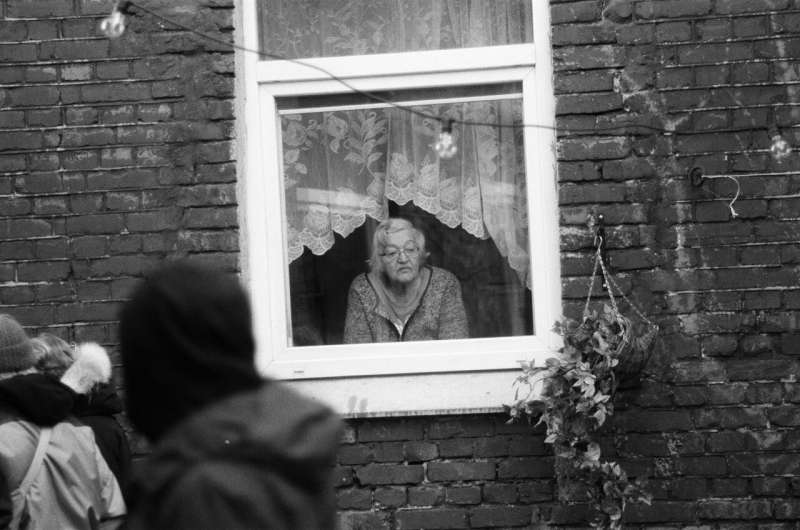This article has been reviewed according to Science X's editorial process and policies. Editors have highlighted the following attributes while ensuring the content's credibility:
fact-checked
trusted source
proofread
Pandemic 'fear of missing out' had mental health consequences for older adults, study shows

During the COVID-19 pandemic, fear of missing out (FOMO) on social activities may have negatively affected the mental health of adults at high risk of serious disease, according to a new study from Rice University and Baylor University.
"Fear of missing out and depressive symptoms during the COVID-19 pandemic" was published June 29 in Social and Personality Psychology Compass and is authored by Angie LeRoy, an assistant professor of psychology and neuroscience at Baylor; Vincent Lai, a Ph.D. student at Rice; Arya Tsay-Jones, who participated in the research as a Rice undergraduate; and Chris Fagundes , a professor in Rice's Department of Psychological Sciences.
The acronym "FOMO"—short for the "fear of missing out" one might feel about not being able to take part in events or experiences that could make one's life better—refers to a phenomenon that has become more mainstream in the last decade as social media use has exploded around the world . While the term FOMO is predominantly used by younger generations, feeling FOMO may not only be experienced by Gen Z or millennials.
During the pandemic, the researchers suspected that FOMO may be affecting the mental health of people who were at highest risk for negative health consequences tied to COVID-19 such as hospitalization or death. Amid the first several months of the pandemic in 2020, they surveyed 76 individuals with an average age of 69 years about these attitudes.
"When the COVID-19 outbreak hit the U.S. in early 2020, governments issued 'lockdown' and 'social distancing' ordinances to prevent the spread of the virus," said LeRoy, one of the study's lead authors. "These unprecedented circumstances left most people quite literally 'missing out' on their social lives—everything from ordinary interactions with family and friends to important life milestones like weddings and graduations."
The researchers found that feeling FOMO was also linked to experiencing symptoms of depression—including sadness, feelings of worthlessness and hopelessness—and that these symptoms of depression were not due to other stressors in people's lives at the time of the pandemic, such as feeling lonely or being worried about catching COVID-19.
"COVID-19 significantly impacted people's mental health throughout the pandemic," Fagundes said. "This study contributes to understanding the pathways linking COVID-19 to poor mental health by investigating the impact of an understudied psychological phenomenon, FOMO."
These scholars said future research should further explore whether feeling FOMO now may make someone more likely to develop a later case of the "blues." They also suspect that FOMO will continue to impact people beyond the COVID-19 pandemic.
"We hope that our findings will help inform researchers who are looking for ways to help people who are struggling with feelings of missing out," said Lai, also a lead author of the study. "Some promising strategies that might be helpful include reducing social media use, distracting yourself with hobbies or other activities, or getting support from a friend or family member."
More information: Angie S. LeRoy et al, Fear of missing out and depressive symptoms during the COVID‐19 pandemic, Social and Personality Psychology Compass (2023). DOI: 10.1111/spc3.12828



















